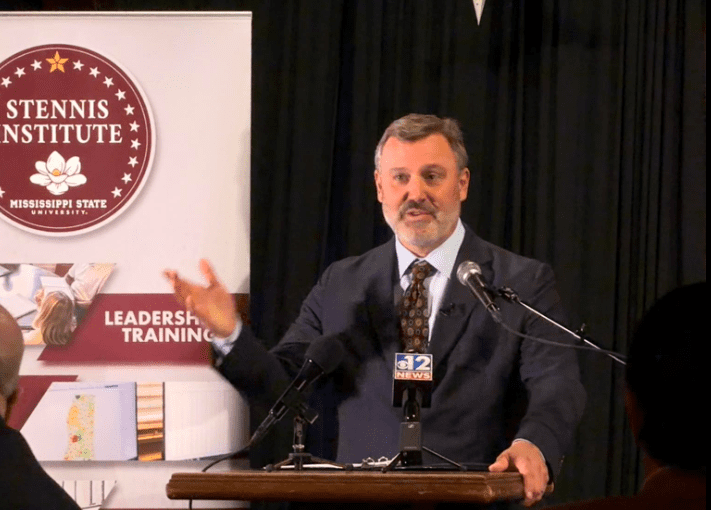
(Photo from Shutterstock)
- Out of every 1,000 births, 9.7 Mississippi babies die before their first birthday, the highest rate in more than a decade.
Lawmakers recently held a joint hearing focused on Mississippi’s infant mortality rate as experts offered solutions ranging from more government intervention to cash payments for mothers and children.
During the nearly four-hour hearing, members of the committee were informed that Mississippi leads the nation in infant mortality. Out of every 1,000 births, 9.7 babies die before their first birthday, the highest rate in more than a decade. The national average is 5.5 deaths per 1,000.
In August, Mississippi health officials declared a public emergency over the state’s rising infant mortality rate.
Mississippi Department of Health data shows black infants are three times more likely to die in their first year than white infants. In 2024, the death rate of black infants was 15.2 per 1,000, up from 12.3 percent the year before. The white infant death rate was down from 6.3 in 2023 to 5.8 in 2024.
“This is a crisis, because these babies should not be dying,” said Dr. Randy Henderson, chair of the Death Review Panel at the Mississippi Department of Health.
Geographically, Delta and East Central Mississippi counties lead the state in infant deaths, he said, noting the distance to a hospital with neonatal facilities plays a large part in the deaths. There is only one Level 4 Neonatal Intensive Care Unit in Mississippi, that being the Children’s Hospital in Jackson. The state does have nine Level 3 NICUs. However, said Dr. Henderson, 70 percent of deaths occur at hospitals ranked below Level 3.
Experts testified that several factors led to neonatal mortality, including poverty, maternal health care, lack of doctors and nurses trained in perinatology, transportation, health challenges such as diabetes and high blood pressure, and Mississippi’s lack of labor and delivery units.
Dr. Daniel Edney, Mississippi’s State Health Officer, recommended several solutions the state could implement to bring down infant mortality rates. He said there is a need to improve the labor and delivery system of care by closing access gaps in obstetrician care. Also, a “hard push” to reduce accidental deaths and increase the department’s Healthy Mom Health Baby program could help. That program educates mothers on vital ways to improve health outcomes for themselves and their children.
Dr. Edney said robust community engagement about the importance of vaccination and vaccine equity is vital. It can be done, he said, as Mississippians saw during the COVID outbreak.
Legislatively, Dr. Edney said statutory authority for a Fetal and Infant Mortality Review is critical. In addition, collaboration between state governments, various federal agencies, and the private sector could have a healthy impact on decreasing the infant death rate, as well as incentivizing workforce development in rural areas for maternal-infant health.
The committee also heard from Dr. Mona Hanna, Kids Rx founder and Associate Dean for Public Health at Michigan State University. Kids Rx provides $1,500 to moms during pregnancy and $500 a month for six to 12 months after birth, she said.
“We don’t have to be OK with babies dying because of deprivation. This is not a genius idea, it’s not a new idea, it’s not a radical idea – this is just common sense,” she said, adding that infant mortality is directly linked to material conditions during pregnancy, such as poor eating, unstable housing, prenatal care, and other financial struggles.
The money, which comes from private and public funds, allows expectant mothers to pay rent, purchase groceries, and visit doctors, she testified.
“Mississippi needs an immediate, evidence-based intervention that addresses the health of moms and babies and delivers meaningful impact for families,” she said, noting a quarter of children in Mississippi live in poverty, the third highest in the nation.
Data from the foundation shows that it helped decrease pre-term births by 18 percent while also seeing a decline in smoking moms and a 27 percent reduction in low birthweight babies.
This piqued the interest of State Senator Hob Bryan (D), chair of the Senate Health Committee, who said the program “showed great promise.” Chairman of the House Health Committee, State Rep. Sam Creekmore (R), said he will “float” the idea to House members, but is concerned about funding the program.
“It comes down to can we afford it, or can we not afford it – but we can’t ignore it. It’s proven, successful, and something I wanted to bring to the table today,” he said.
The cost of the program depends on the number of people who participate.
A few committee members expressed a leeriness of giving mothers $1,500 with virtually no strings attached. One member, State Rep. Dan Eubanks (R), said he is concerned about a “lack of accountability” with Kids RX participants. He wanted to know what stops expectant mothers from purchasing “illegal drugs or cigarettes.”
The question received more than a few head shakes from other committee members and people in the audience.
“If we’re trying to incentivize better behaviors, but we’re just giving them money, how does that incentivize them to correct some of the underlying causes of infant mortality?” Eubanks asked.
Dr. Hanna answered that studies show a more than 10 percent decrease in smoking, which she links to decreased stress felt by the mother.
“Moms by and large know what they need to do. They know what’s important; everybody loves their babies, and they want healthy babies. If you just give them a little bit of an economic cushion during this window, we see all these improvements,” she said.
A private foundation has already pledged $2 million for the program if Mississippi participates, Dr. Hanna said.











